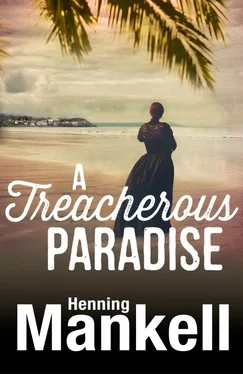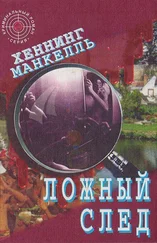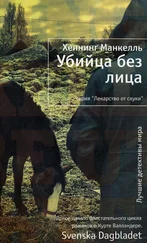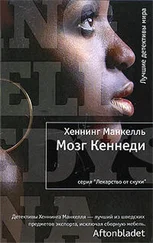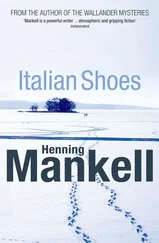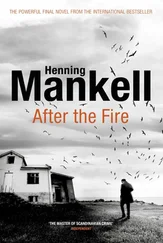‘For black children?’
‘Yes.’
‘In the middle of the white men’s red-light district?’
‘That is precisely my intention. To create something that reminds people of all the parentless black children drifting around like leaves in the wind.’
‘The governor would never allow it.’
‘He’s a friend of mine. He knows that he’s dependent on me to keep his job. A lot of white people in this town accept my advice.’
Hanna shook her head. She didn’t know what to believe. Who was this man who had been sitting there with his eyes closed, and now suddenly wanted to buy the brothel?
‘I don’t know if I’m going to sell,’ she said. ‘Nothing has been decided.’
‘My offer still applies tomorrow, and perhaps some time into the future. I know you use the solicitor Andrade. Ask him to contact me.’
‘I don’t even know where you live.’
‘He does,’ said Nunez with a smile.
‘I need some time to think this over. We can meet here a week from now. At the same time.’
He bowed deeply.
‘I’ll be here. But a week is too long. Let us say three days from now.’
‘I don’t know who you are,’ she said again.
‘I’m sure you can easily find out.’
Hanna left the cathedral. Once again she needed some advice, and she knew there was a person she could turn to. Not only to ask about Nunez, but also about what Father Leopoldo had said.
That same afternoon she was driven out to Pedro Pimenta’s farm, where dogs were barking and crocodiles thrashing their tails before vanishing into the murky waters of their pools.
When she got out of the car and the engine had been switched off, she heard the sound of glass shattering inside the house. The veranda was deserted.
Hanna looked around. Everything seemed strangely empty. Then a white woman came racing out of the door, her hands covering her face. She was followed by a girl, screaming and trying to catch up with the fleeing woman.
They disappeared down the hill leading to the crocodile pools. Then silence once again.
A boy a few years older than the girl came out of the door. Hanna had never seen him, the girl or the sobbing woman before.
The boy, who might have been sixteen or thereabouts, paused in the doorway. He seemed to be holding his breath.
He’s like me, Hanna thought. I can recognize myself in him — there in the doorway stands a boy who doesn’t understand a thing about what is happening all around him.
The scene Hanna was observing was transformed into an oil painting with the frame formed by sunbeams. The boy’s face seemed to melt as he stood there in the doorway. The dogs in their cages had fallen silent: they just stood there, tongues hanging out and panting heavily.
Quietness at last! Hanna thought. In this peculiar town it is never normally silent. There’s always somebody speaking, shouting, screeching or laughing. Not even at night does the town seem to rest.
But just now: silence.
The boy stood there motionless, tied down in the middle of the painting. Hanna was just going to walk over to the steps leading up to the veranda when Pedro Pimenta came out through the door. He stopped next to the boy, who stared at him. Pimenta was holding a blood-soaked handkerchief. He had a wound in his forehead that hadn’t quite stopped bleeding. He can’t have been shot, Hanna thought. A shot in the forehead would have killed him. Then she remembered the sound of shattering glass, and assumed that the sobbing woman must have thrown something at him.
Pimenta looked down at the blood-soaked handkerchief, then caught sight of Hanna standing under her parasol. He seemed tired, lacking the usual energy and friendliness he normally displayed when he had visitors. Instead of inviting her up to the veranda, he went down the steps to her. The wound in his forehead was a deep scratch just above his left eye and running up to his greying hair.
‘Did you see where they went to?’ he asked.
‘If you mean the woman and the girl, they headed for the crocodile pools.’
He pulled a worried face, then shook his head.
‘I must find them,’ he said. ‘Go and sit down on the veranda and wait until I get back. Everything can be explained.’
‘Where’s your wife? Who’s the boy?’
Pimenta didn’t answer. He threw the handkerchief on to the ground and hurried off down the slope towards the pools.
Hanna sat down on the veranda. The boy was still in the doorway. She nodded at him, but he didn’t react. It was still silent on all sides. She stood up and went into the house. There were glass splinters all over the floor, which was covered by lion hides and zebra skins. Hanging on one of the walls was the mounted head of a kudu, with its long spiral-shaped horns. Hanna tried to imagine what had happened. Not knowing who the woman and the boy were, she couldn’t imagine the sequence of events. The glass shards glittered like pearls scattered over the animal skins.
She found all the domestic staff collected in the kitchen. They were scared, crowded together, protecting one another. Hanna was going to ask them what had happened, but changed her mind. Pimenta’s wife and the children must be somewhere in the house. She searched the ground floor, then went up the stairs. In the biggest bedroom, where Pimenta slept with Isabel, Hanna found her and the two children. They were sitting on the bed, huddled up next to each other.
‘I don’t want to disturb you,’ said Hanna, ‘but I was worried when I heard the sound of breaking glass and saw Pedro with a bleeding forehead.’
Isabel looked at her without answering. Unlike the servants, she was not afraid, Hanna could see that straight away.
Isabel was furious, full of simmering anger of a kind that Hanna had never seen in this woman before.
‘What’s happened?’ she asked.
‘It’s best if you leave,’ said Isabel. ‘I don’t want you to be here when what has to happen actually happens.’
‘What’s that?’
‘That I kill him.’
The children didn’t seem at all surprised. Hanna thought that could only mean one thing: that they’d heard her say it before.
Hanna sat down gingerly beside Isabel and took hold of her hand.
‘I don’t understand what’s going on. How can you say to me, in the presence of your children, that you’re going to kill your husband?’
‘Because I am.’
‘But why?’
Isabel turned to look at her. Hanna could see that Isabel found it impossible to grasp that Hanna didn’t get it. What is it that I can’t see? she asked herself. I’m caught up in a drama that I don’t understand.
Isabel suddenly stood up and smoothed down her skirt, as if running her hands over her body in that way would give her strength. The two children looked at her. Isabel bent down in front of them.
‘Stay here,’ she said. ‘I’ll be back shortly. Nothing will happen to you.’
Then she took Hanna by the arm and escorted her out of the room.
‘What’s going to happen now?’ Hanna asked.
‘You’ve already asked me that question. I don’t know what’s going to happen. You can leave if you want to. Or you can stay. Do whichever you like.’
They had come down the stairs by now. The boy was still standing in the doorway. Isabel swept past him without even looking at him. She doesn’t like him, Hanna thought. A grown woman distancing herself from a young boy. A suspicion, vague as yet but perhaps the beginnings of an explanation, began to grow in her mind.
Isabel flopped down on the sofa on the veranda. Hanna moved a basket chair closer to the wall and sat down carefully. Still the boy didn’t move. It seemed to Hanna that she was now entering the oil painting she had imagined earlier. She was no longer just an observer.
Читать дальше
